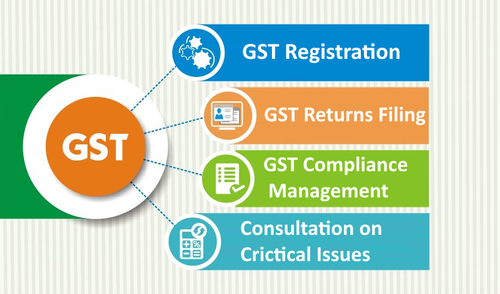Why Services Favor the most effective GST Registration Services in Singapore
Why Services Favor the most effective GST Registration Services in Singapore
Blog Article
From Beginning To End: The Ultimate Roadmap to GST Enrollment for Companies Looking For Financial Stability
Browsing the intricacies of Product and Services Tax (GST) registration is a critical step for organizations pursuing financial stability. From recognizing the fundamental principles of GST to abiding by post-registration standards, the process can appear intimidating in the beginning look. However, damaging down the roadmap right into convenient actions can streamline the registration journey for organizations looking to enhance their monetary standing. Allow's explore the vital parts that make up this best roadmap and find just how each stage adds to laying a strong structure for economic success.
Understanding GST Fundamentals
Delving into the basic principles of Product and Services Tax (GST) is necessary for gaining a detailed understanding of its effects on companies and the economic climate. Input Tax Obligation Debt (ITC) is a considerable function of GST, permitting businesses to claim credit report for tax obligations paid on inputs, reducing the overall tax worry. Understanding the fundamentals of GST is important for organizations to conform with tax obligation policies, handle their finances effectively, and contribute to the nation's economic growth by taking part in a transparent tax system.
Eligibility Requirements for Enrollment
To register for GST, companies have to meet particular eligibility criteria established by the federal government. The primary qualification need is that any kind of organization entailed in the supply of items or solutions with an annual aggregate turnover over the threshold restriction established by the authorities have to sign up for GST. As of the existing laws, the threshold restriction for GST registration is an annual accumulation turn over of 40 lakhs for services operating within a state, except for special category states where the limitation is 20 lakhs. In addition, particular companies are needed to register for GST irrespective of their turn over, such as interstate vendors, laid-back taxable individuals, and companies reliant pay tax obligation under the reverse charge device. It is critical for services to thoroughly analyze their turn over and transaction kinds to identify their GST registration obligations accurately. Failing to register for GST when eligible can result in penalties and legal effects, making it vital for services to stick to the defined eligibility requirements.
Files Needed for Registration
Having actually met the qualification criteria for GST enrollment, companies must currently ensure they have the requisite documents in area to proceed with the enrollment process efficiently. The records needed for GST registration usually include proof of service constitution, such as collaboration deed, enrollment certificate, or incorporation certificate for various kinds of businesses. In addition, companies require to offer records establishing the major location of business, such as a rental contract or electricity costs.
Step-by-Step Registration Refine
Beginning the GST enrollment process includes a collection of structured actions to guarantee a compliant and smooth registration for services. The initial step is to check out the GST site and fill in the enrollment form with accurate information of the service entity. Following this, the applicant obtains a Short-term Referral Number (TRN) which is utilized to return to the application procedure if it's not completed in one go.
Next, all needed imp source records based on the list provided by the GST portal need to be submitted. These papers typically include proof of company enrollment, address and identification evidence of promoters, financial statements, and organization entity's frying pan card.

Post-Registration Compliance Standards

Conclusion
Finally, organizations seeking financial security has to recognize the fundamentals of GST, satisfy eligibility criteria, collect needed papers, comply with the step-by-step enrollment procedure, and abide by post-registration standards - Best GST registration services in Singapore. By adhering to these steps, businesses can make certain conformity with tax policies and keep economic stability over time
In addition, specific companies are required to sign up for GST irrespective of their turnover, such as interstate distributors, laid-back taxable individuals, and organizations responsible to pay tax under the reverse fee mechanism.Having actually met the qualification requirements for GST enrollment, services should currently ensure they have the requisite documents in area to proceed with the enrollment process effectively. The documents needed for GST registration typically content consist of proof of service constitution, such as partnership action, enrollment certificate, or unification certificate for various types of services. Additionally, organizations need to give files developing the principal area of company, such as a rental agreement or electrical energy bill.Beginning the GST enrollment process involves a series of organized steps to make certain a smooth and certified registration for organizations.
Report this page